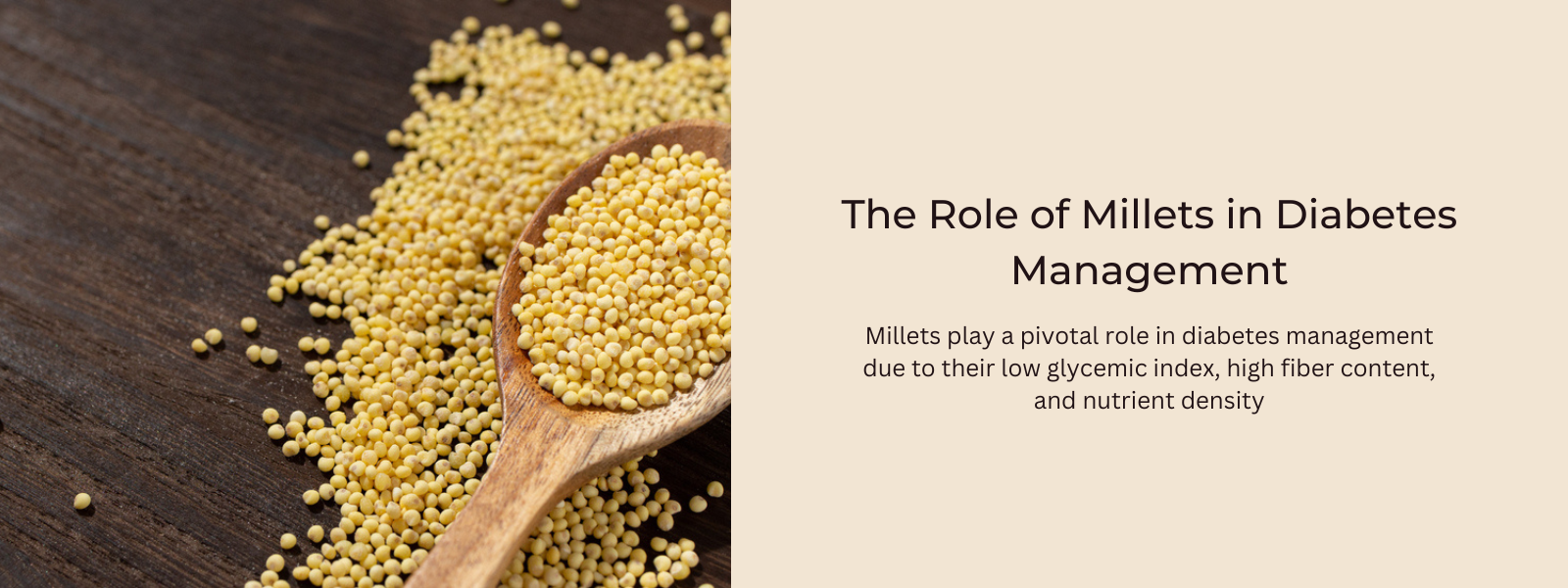Millet is a smart choice for several reasons, particularly in promoting heart health. It's low in saturated fats, rich in heart-healthy soluble fiber, and contains essential minerals like magnesium and potassium that help regulate blood pressure and maintain a steady heartbeat. Millets are also known for their low glycemic index, which helps stabilize blood sugar levels, a crucial factor in heart health. Moreover, their filling nature supports weight management, another key aspect of cardiovascular well-being. Millets, being naturally gluten-free, provide a safe and nutritious option for those with gluten sensitivities, which are associated with certain heart conditions.
Table of Contents
Why Are Millets Good For Health?
Millets are indeed a smart choice for promoting heart health. Here's why:
- Low in Saturated Fat: Millets are naturally low in saturated fats, which can contribute to high cholesterol levels and heart disease. A diet low in saturated fat is recommended for heart health.
- Rich in Fiber: Millets are an excellent source of dietary fiber, particularly soluble fiber. Fiber helps lower cholesterol levels by binding to cholesterol and aiding its excretion from the body.
- Magnesium Content: Millets are a good source of magnesium, a mineral that plays a crucial role in heart health. Magnesium helps regulate blood pressure and maintain a steady heartbeat.
- Potassium Levels: Potassium, another essential mineral found in millets, is known for its role in regulating blood pressure. Consuming potassium-rich foods can help reduce the risk of hypertension and heart disease.
- Antioxidants: Some millets, such as finger millet (ragi), contain antioxidants that can help reduce oxidative stress, which is associated with heart disease.
- Low Glycemic Index: Millets have a low glycemic index, meaning they do not cause rapid spikes in blood sugar. Maintaining stable blood sugar levels can support heart health.
- Weight Management: Millets are filling and can contribute to a sense of fullness. Managing weight is essential for heart health, as excess weight can increase the risk of heart disease.
-
Gluten-Free Option: For individuals with gluten sensitivities or celiac disease, millets offer a safe and nutritious gluten-free alternative, as certain heart conditions are linked to gluten-related disorders.
Millets Are Great To Prevent Heart Diseases:
Millets are a heart-healthy choice for several compelling reasons. They are naturally low in saturated fats, which can contribute to high cholesterol and heart disease. Additionally, millets are rich in soluble fiber, a dietary component known to help lower cholesterol levels. These grains provide essential minerals like magnesium and potassium, which play key roles in regulating blood pressure and maintaining a healthy heart rhythm. Their low glycemic index ensures a gradual and steady release of energy, which is important for stable blood sugar levels, reducing the risk of heart-related complications. Moreover, the filling nature of millets can aid in weight management, a crucial factor in heart health. By being naturally gluten-free, millets cater to individuals with gluten sensitivities, which are associated with certain heart conditions.
Is Millet Better Than Wheat For Heart?
Millet and wheat both have their own nutritional benefits and can be part of a heart-healthy diet. The choice between them depends on individual preferences and dietary requirements.
Millet is considered a heart-healthy option because it is naturally low in saturated fats, high in dietary fiber, and contains minerals like magnesium and potassium, which are beneficial for heart health. Its low glycemic index can help regulate blood sugar levels, reducing the risk of heart-related complications.
Wheat, particularly whole wheat, is also a good choice for heart health. Whole wheat contains dietary fiber, antioxidants, and other heart-healthy nutrients. It can help reduce cholesterol levels and support overall cardiovascular well-being.
The key to heart health is not just the choice between millet and wheat but the overall dietary pattern. A balanced diet that includes a variety of whole grains, plenty of fruits and vegetables, lean proteins, and healthy fats is crucial. Additionally, maintaining a healthy lifestyle with regular physical activity and managing weight are equally important for heart health.
Conclusion:
Incorporating millets into your diet as part of a balanced and heart-healthy meal plan can be a wise choice for maintaining cardiovascular health. However, it's important to remember that overall dietary patterns, lifestyle factors, and genetics also play a significant role in heart disease prevention.











Leave a comment